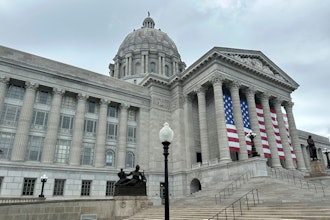
WASHINGTON — The National Retail Federation told Congress on Wednesday the Labor Department’s proposal to expand overtime would limit career opportunities for workers, and released updated research showing that the plan could cost retailers hundreds of millions of dollars in administrative costs even if most workers see no increase in take-home pay.
“The National Retail Federation and our members have grave concerns regarding the administration’s proposed changes,” NRF Senior Vice President for Government Relations David French said. “We believe DOL’s proposal is unprecedented and will negatively impact career advancement opportunity for employees and further insert the government into the way retailers run their businesses.”
“It is unlikely that many affected workers would experience a boost in overall compensation,” French said. “The net result of these changes would be an accelerated hollowing out of middle-level management, making it much more difficult for hourly workers to rise into the professional ranks. We expect companies would encounter difficulties developing talent and promoting internally due to the narrower pipeline of talent resulting from these changes.”
French’s comments came in a letter sent both to the House Education and Workforce Committee, which is scheduled to hold a hearing on the proposal on Thursday, and the Senate Health, Education, Labor and Pensions Committee.
Under current rules, anyone making up to $455 a week is guaranteed overtime if they work more than 40 hours, but those making more can be declared exempt if they meet certain requirements such as having supervision of other workers as their primary duty. Under the DOL proposal unveiled in June, the salary threshold would rise to $970. But rather than proposing specific changes in what managers can do and still be exempt, the administration is asking whether changes should be made and how.
A study conducted for NRF by the research firm Oxford Economics before the proposal was released examined the impact of raising the salary threshold to a series of possible levels.
Now that the actual proposal is known, an update to the study shows that fully implementing the $970 level could potentially cost the retail and restaurant industries alone $8.4 billion a year. But the study found that the tight economy would force many employers to offset the added payroll costs by reducing hours, base pay or bonuses, and to shift extra hours to part-time workers. Of about 800,000 employees who work more than 40 hours, a little over 100,000 would receive overtime but see benefits or bonuses cut. Another 463,000 who would lose exempt status and become hourly would receive overtime but see hourly rates decreased by an equivalent amount, and 232,000 who would lose exempt status would see their time cut to 38 hours a week, according to the study. An estimated 117,000 part-time workers would be hired to fill required hours at straight time rather than time-and-a-half overtime.
Even if most workers see no additional take-home pay, the study found that updating payroll systems, establishing ways to track employee hours and other administrative expenses would cost retailers and restaurants an estimated $745 million to implement the new regulations. The figure is roughly three times DOL’s estimate of administrative costs.
A separate survey conducted by GfK found that the majority of retail managers the proposal is supposed to help are opposed to the changes, saying that becoming hourly workers would undermine their ability to lead by example.
Businesses have been given until September to respond to the proposal, but NRF has asked for an extension until November, saying the “drastic changes” will require “extensive analysis.”
- See more at: https://nrf.com/media/press-releases/overtime-proposal-would-limit-career-opportunities#sthash.YN7GXWSi.dpuf






















